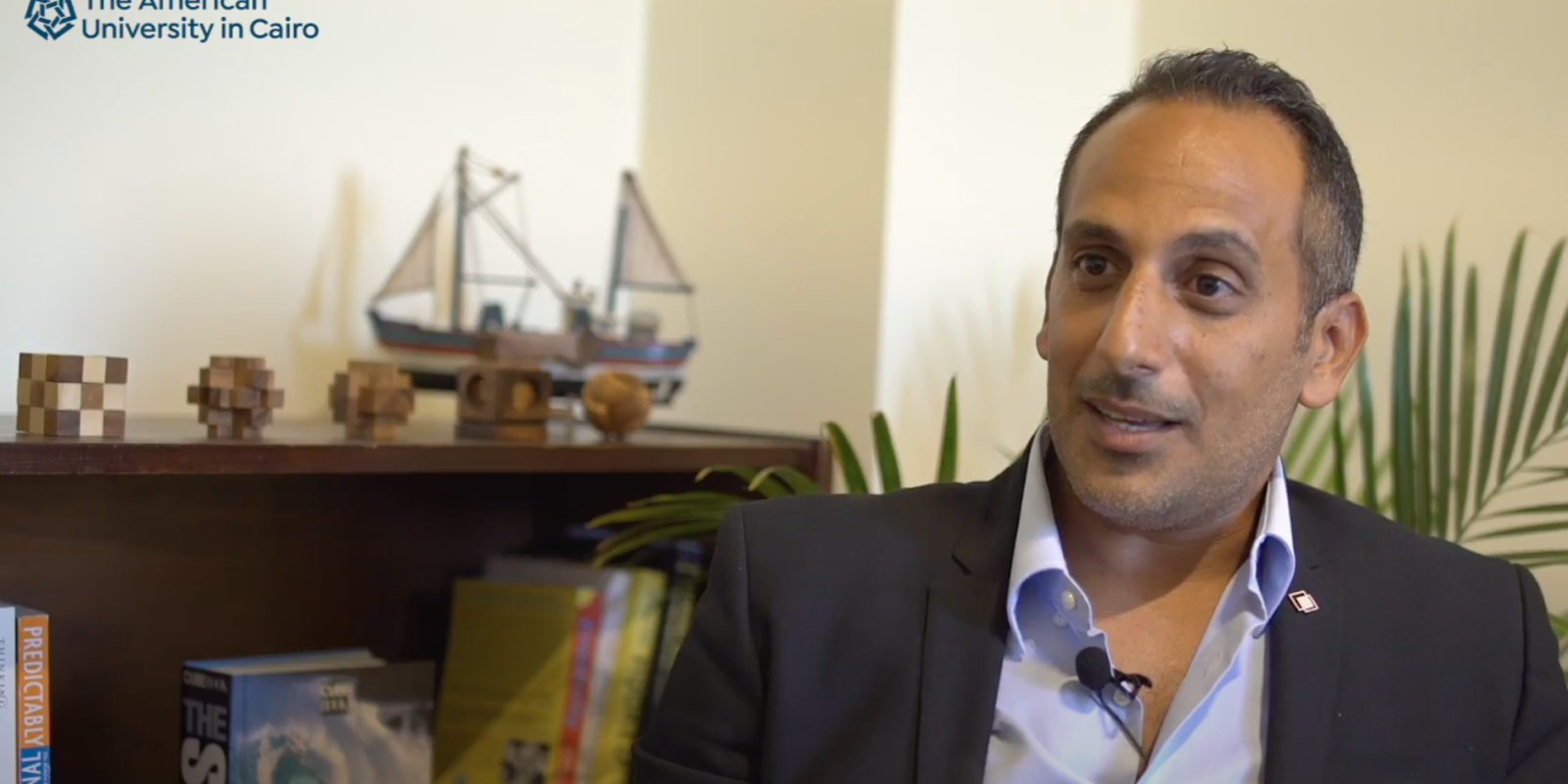
Two New Initiatives Seek to Fine-Tune Learning at AUC
Fady Morcos, AUC’s assistant provost for innovative learning experiences is heading two new initiatives aimed at enhancing students’ learning experience and enriching AUC’s learning culture: the AUC Peer Tutoring Center, which helps students navigate AUC’s academic rigor, and Impact-Driven Innovation, which strives to strengthen innovation culture among students.
Peer Tutoring Center
Through analyzing survey data and student focus groups, Morcos found that many students struggle in navigating academic rigor at AUC, especially during their freshman and sophomore years when they are still adjusting to academic expectations and life as a college student.
To support students in unlocking their full potential, AUC is launching the Peer Tutoring Center, through which students can schedule one-on-one sessions with academically excelling peers to support them through their learning journey.
“Many students are struggling in some of their courses, especially foundation courses, and this is creating much avoidable stress,” Morcos explained. “Peer tutors can provide students with personalized learning support that goes beyond facilitating understanding of complex concepts, and towards building problem-solving and study skills that students really need to excel in those foundation courses.”
All peer tutors go through pedagogical training that equip them with the proper skills to facilitate effective tutoring sessions.
It is now ready to kick off the official pilot this fall, which will include ten foundation courses that students face challenges with, and more courses will be added in Spring 2022. “However, if students need support with a course that is not currently supported, they should get in touch, and we will try to connect them with someone who can meet their learning needs,” Morcos explained.
The program offers flexible hours and schedules to accommodate students’ academic and extra-curricular schedules. Students will be able to reserve face-to-face sessions, which will take place at AUC library during the day, or the opportunity to meet online via zoom during evening hours.
“We're approaching this with a student-centered perspective. We’re trying to support our students and see what their needs are and what works for them,” Morcos said.
Morcos is confident that the program will not only help students in their courses, but that it will also enhance their overall learning experience at AUC. "Regardless of the content itself, peer tutoring is a valuable tool, one which we thought we need to provide for our students to support them in achieving their goals at AUC,” he said.
To learn more about the Peer Tutoring Center, visit their website and book your tutoring appointment.
Impact-Driven Innovation
The Impact-Driven Innovation initiative focuses on integrating innovation and creative problem solving into academic curricula and out-of-classroom learning experiences. The initiative aims at fostering collaboration between AUC and external partners, including local, regional and international corporations, social enterprises and government agencies.
“We are working with our faculty members and a large network of external partners to design and scope multidisciplinary, real-life challenges that will then be integrated into academic courses across our schools and departments.” Morcos said.
Innovation and challenge-based learning experiences will also be accessible outside the classroom through university-wide challenge competitions, where multidisciplinary student teams will work on developing innovative solutions to real-life corporate, social, behavioral and cultural challenges, Morcos explained.
“We will work on building problem-solving and innovation capacity among our undergraduate and graduate student body to enable them to tackle complex real-life problems and create real impact in their community,” Morcos said.
According to Morcos, the initiative will benefit students and external partners alike. Instead of working on hypothetical course projects, students will work on real-life problems with stakeholders who guide the process, provide relevant input and potentially implement the solutions that students come up with. “To the external partners, the experience can be seen as an extended interview, where they can see firsthand the problem-solving, interpersonal and innovation skills of prospective employees or team members,” Morcos said.
“I would hope to see that these experiences enable and stimulate students into coming up with their own challenges, identifying problems in their communities across different industries and social aspects, and start innovating and creating their own futures.”
